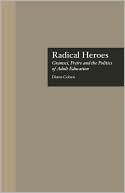Category Books
- Fiction Books & Literature
- Graphic Novels
- Horror
- Mystery & Crime
- Poetry
- Romance Books
- Science Fiction & Fantasy
- Thrillers
- Westerns
- Ages 0-2
- Ages 3-5
- Ages 6-8
- Ages 9-12
- Teens
- Children's Books
- African Americans
- Antiques & Collectibles
- Art, Architecture & Photography
- Bibles & Bible Studies
- Biography
- Business Books
- Christianity
- Computer Books & Technology Books
- Cookbooks, Food & Wine
- Crafts & Hobbies Books
- Education & Teaching
- Engineering
- Entertainment
- Foreign Languages
- Game Books
- Gay & Lesbian
- Health Books, Diet & Fitness Books
- History
- Home & Garden
- Humor Books
- Judaism & Judaica
- Law
- Medical Books
- New Age & Spirituality
- Nonfiction
- Parenting & Family
- Pets
- Philosophy
- Political Books & Current Events Books
- Psychology & Psychotherapy
- Reference
- Religion Books
- Science & Nature
- Self Improvement
- Sex & Relationships
- Social Sciences
- Sports & Adventure
- Study Guides & Test Prep
- Travel
- True Crime
- Weddings
- Women's Studies
Radical Heroes: Gramsci, Freire, and the Politics of Adult Education » (New Edition)

Authors: Diana Coben
ISBN-13: 9780815318989, ISBN-10: 0815318987
Format: Hardcover
Publisher: Taylor & Francis, Inc.
Date Published: April 1998
Edition: New Edition
Author Biography: Diana Coben
Book Synopsis
This book examines the ideas of two of the most controversial radical heroes of adult education, Antonio Gramsci and Paulo Freire, gauging their significance for the development of a radical politics of adult education in the post-Soviet, post-apartheid new world order.
Gramsci offers a noble vision of the role of adult education in the creation of revolutionary Marxist hegemony; but the cause he lived and died for has all but collapsed. Nevertheless, his distinction between common sense and good sense, his theory of the intellectual and his concept of hegemony bear scrutiny today. In Freire's pedagogy of the oppressed, the relationship between leader and followed, teacher and student, is problematic and this book questions whether his pedagogy has the liberating potential he envisioned. The author considers and rejects the linkage of Gramsci's and Freire's ideas in the adult education literature. Nonetheless, Gramsci and Freire have huge symbolic importance as radical heroes in an under-theorized and marginalised field. The study highlights a problem with the radical hero phenomenon: when individuals become icons, their ideas cease to be open, and new insights do not emerge as challenge becomes inadmissible and debate dies. While neither Gramsci nor Freire can provide us with answers, Gramsci helps us address the difficult questions of purpose and content in the politics of adult education.
Booknews
Examines the ideas of two controversial figures in adult education, Antonio Gramsci and Paulo Freire. The author analyzes these "radical heroes" in the context of their significance to the development of a radical politics of adult education, that is, adult education with an agenda rooted in social consciousness. She argues that the two are central to the study of adult education because both thinkers were interested in the ways that power wielders sought to engage citizens. Both the similarities and the divergences of their thinking are examined. Annotation c. by Book News, Inc., Portland, Or.
Table of Contents
Subjects
 Politicos
Politicos  Communists & Socialists - Political Biography
Communists & Socialists - Political BiographyBiography
 Politicos
Politicos  Europe - Political Biography
Europe - Political BiographyBiography
 All Biography
All Biography  Political Biography
Political BiographyEducation & Teaching
 Adult & Continuing Education
Adult & Continuing Education  Adult education -> Political aspects
Adult education -> Political aspectsEducation & Teaching
 Educational Levels & Settings
Educational Levels & Settings  Adult & Continuing Education
Adult & Continuing EducationEducation & Teaching
 Social & Political Aspects of Education
Social & Political Aspects of Education  Education - Philosophy & Social Aspects
Education - Philosophy & Social AspectsEducation & Teaching
 Social & Political Aspects of Education
Social & Political Aspects of Education  Education - Political Aspects
Education - Political AspectsNonfiction
 All Nonfiction
All Nonfiction  Education - Social & Political Aspects
Education - Social & Political AspectsPolitical Books & Current Events Books
 Political Biography
Political Biography  Communists & Socialists - Political Biography
Communists & Socialists - Political BiographyPolitical Books & Current Events Books
 Political Biography
Political Biography  Europe - Political Biography
Europe - Political BiographyPolitical Books & Current Events Books
 All Politics
All Politics  Political Biography
Political BiographyPolitical Books & Current Events Books
 All Politics
All Politics  Political Theory & Ideology
Political Theory & IdeologyNonfiction
 Biography
Biography  Politicos
PoliticosNonfiction
 Biography
Biography  All Biography
All BiographyNonfiction
 Politics & Current Affairs
Politics & Current Affairs  Political Biography
Political BiographyNonfiction
 Politics & Current Affairs
Politics & Current Affairs  All Politics
All Politics
